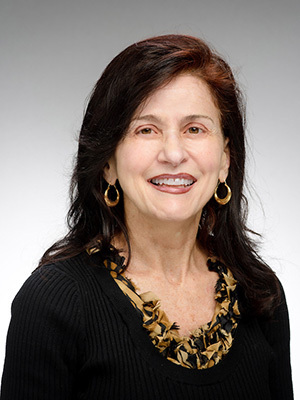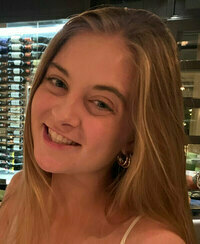Through new online class and UN partnership, Notre Dame students teach Italian to African refugees
Tiziana Serafini, a native of Rome and a teaching professor of Italian at the University of Notre Dame, was transfixed in August 2021 after seeing images of Afghanistan refugees crowding into a U.S. military cargo plane. Several people hung onto the outside of the plane before they fell to the ground after takeoff.
While the video and images told an immediate life-and-death story, Serafini’s thoughts later drifted to the next steps for the people on the plane who were about to arrive in a different country.
“They have to learn a language to lead a new life. Then I thought, there must be a need for foreign-language teachers,” she said.

That moment inspired Serafini to develop a new service-learning course that could offer a solution for refugees and empower Notre Dame Italian students to become educators themselves — by teaching basic Italian to African refugees before they relocate to Italy.
In the process, the Notre Dame students sharpened their Italian skills, learned how to teach others and developed global awareness and empathy for the refugee experience.
“Language is vital. It’s at the center of our beings. We need to communicate,” she said. “And if we speak different languages, we have to find a common way to communicate. What better way than to put your knowledge to the service of another person who is in need?”
She partnered with the Office of Digital Learning to offer the online course, called Learning and Teaching Beyond the Classroom, and co-taught it last summer with Suzanne Shanahan, the Leo and Arlene Hawk Executive Director of the Center for Social Concerns. Serafini plans to lead it again this spring and perhaps regularly going forward.
“We really need to rethink the teaching of foreign languages,” Serafini said. “We need to be thinking in terms of the social needs that we see arising in societies every day, more and more with all the wars and tumultuous situations we see in the world.”
Last summer, the course began with five undergraduates — including majors from the College of Arts and Letters, College of Science and Mendoza College of Business — and one graduate student engaged in experiential and service learning. Serafini and the students met with the refugees virtually in their African camp, and in three weeks, they covered a semester of Italian for beginners.
The refugees, who previously lived in the Congo, Nigeria and South Africa, were eager to learn the language and customs of the places in Italy they would go. For each lesson, the African students huddled around one screen in their refugee camp, about five students at a time, to learn the basics of introducing themselves, talking about their day and communicating in social settings.
The lessons were assisted by the fact that the students all spoke English, even though their native languages included Kiswahili, Lingala, Kinyarwanda and Swahili. Some also spoke French.
“We saw a tremendous amount of motivation,” Serafini said. “Whenever we hit a stumbling block, at least we were able to communicate in English.”
Eager to learn

The class attracted sophomore Gabe Biondo, who spent summers as a youth visiting grandparents in Sicily, where they lived near a refugee facility. This summer, he plans to work with physicians in northern Italy at a medical center for refugees.
Biondo said the class accomplishes Serafini’s goal of developing the global perspective while putting the refugees in a position to overcome language barriers when they reach their new homes.
“In communicating with the refugees, it was interesting to see how passionate they were about learning and asking for more sessions to increase their learning of Italian,” said Biondo, who is majoring in Italian and neuroscience and behavior. “They really are very happy to be given this opportunity to move to Italy and have a new life, which was really inspiring. You could see the effect of your work; it’s not being taken for granted. It’s really appreciated.”

That appreciation came during class questions and feedback that was followed by emails in which the refugees requested more sessions and talked about the class being well-organized.
“They were all really eager to learn,” Biondo said.
Tricia McCormack, a junior history major, said the experience demonstrated how crucial language is for human connection.
“This is an incredibly valuable experience because human culture, language and histories are the roots of personhood and are ultimately what bind people together across the world,” McCormack said. “I believe that widespread appreciation for other cultures, histories and languages would ultimately facilitate a more peaceful world.”
Globally speaking
To establish the connection between Notre Dame and the African refugee camp, Serafini collaborated with the United Nations High Commissioner for Refugees (UNHCR), Caritas Italiana (the charitable arm of the Italian Bishops Conference) and faculty from the University for Foreigners in Perugia and the University of Siena.
The UNHCR has coordinated Italian classes for refugees since 2019 with a consortium of 32 Italian universities. Notre Dame is the only American university working with the consortium.
After last summer’s course, Notre Dame students were surveyed about the experience and cited compassion as a transferable skill they acquired. They also reported developing empathy and social awareness, and that their confidence increased after working with refugees.
They all agreed that they are now able to identify and apply information from the class to address real-world problems — and several students wished the class had run even longer.
“I hope the students will appreciate that this course makes them go from the personal to the social to the global. It’s not just doing something for yourself; of course we want to do something for ourselves,” Serafini said. “But in an affluent society like the one we live in, we have the luxury to entertain the idea that we can help others, and I think it will make our life so much more meaningful.”
Latest Colleges & Schools
- Faculty receive prestigious early career awards from National Science FoundationDuring the 2024-25 academic year, four researchers in the University of Notre Dame’s Colleges of Engineering and Science received early-career awards from the National Science Foundation.
- ‘Prebunking’ false election claims may boost trust in electionsIn recent years, democracies worldwide have seen a growing erosion of trust in election outcomes and institutions, driven in part by fears of widespread fraud. New Notre Dame research finds that “prebunking” — providing accurate information before false claims spread — boosts trust in elections more effectively than traditional fact-checking.
- Justice Amy Coney Barrett to deliver Center for Citizenship and Constitutional Government lectureAmy Coney Barrett, associate justice of the Supreme Court of the United States, will speak at the University of Notre Dame at 4 p.m. Sept. 12 in the Leighton Concert Hall of the DeBartolo Performing Arts Center.
- Three Notre Dame researchers win NEH grants for humanities-based projectsDavid Hernandez, the Eli J. and Helen Shaheen Associate Professor of Classics, and Morgan Munsen, senior research and partnerships program manager at the Nanovic Institute for European Studies in the Keough School of Global Affairs, have each won an NEH Collaborative Research grant. Thomas A. Stapleford, associate professor in the Program of Liberal Studies, is leading a team that has been awarded a Humanities Research Center on Artificial Intelligence grant.
- Open-access database offers insights into U.S. congressional candidatesEach election cycle, thousands of candidates vie for seats in the U.S. House of Representatives and the Senate. Until now, there has been no comprehensive, publicly available resource cataloging what those candidates say about who they are or what they stand for. A new open-access database called CampaignView, created by researchers at the University of Notre Dame, offers researchers, journalists and educators a powerful tool to understand congressional elections.
- First impressions count: How babies are talked about during ultrasounds impacts parent perceptions, caregiving relationshipPsychologist Kaylin Hill studied the impact of a parent’s first impression of their baby during an ultrasound exam. The words used by the medical professional to describe the baby (positive or negative) influence how the parents perceive their baby, relate to them after they're born and even how that child behaves as a toddler. The research has broad implications for how we train medical professionals to interact with expectant parents, as well as how we care for parents during the perinatal period when they are most susceptible to depression.













